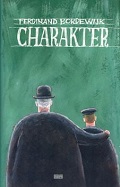Publishing house Európa and the Tulipán (Tulip) editions

Publishing house Európa was founded in 2001 and, as the name suggests, the publisher's focus is primarily on European literature. This means that their fund consists almost exclusively of translations. The website (https://www.vydavatelstvo-europa.sk/ ) immediately gives a look at the webshop and on the left there is a column with websites and articles written about the publications, with a reference to the publisher's facebook page.
In an interview with publisher Martin Plch in the daily SME (12.02.2018) is where we learn most of the information about the publishing house. It wants to focus first and foremost on classics in European literature. In 2001 Slovakia had a political climate with discussion about whether or not to join the European Union and to this day among political parties the foreign policy orientation is either strongly directed towards Russia or strongly or more likely pro-western.
Paradoxically, the publisher's first book concerned a classic of twentieth-century Russian literature: the Twelve Chairs by Ilya Il´f and Yevgeny Petrov. Later, several other works by these authors and other Russian authors came out in this series, the edicia Kolotoč (carousel) series. Carousel is named after the work of the same name by Russian author Mikhail Zoščenko. This edition contains mostly cheerful, humorous books.
The publisher's second series was the Premena series, named after Franz Kafka's Die Verwandlung (the transformation), in which originally all of Kafka's translations were to come out. Eventually this series was expanded to include great classics by Alexander Pushkin, Fyodor Dostoevsky, Anton Chekhov, Stefan Zweig, Bram Stoker, Henryk Sienkiewicz, Robert Musil, Luigi Pirandello, Mikhail Bulgakov, Evgeni Zamjatin, but interestingly for Dutch literature, this series also published Karakter (Character) by Ferdinand Bordewijk and Het verboden rijk (The forbidden empire) by Slauerhoff.
Then, with the passing of time, new editions appeared. Plch also mentions the Šimon edition, with psychological and philosophical literature and the works of Sigmund Freud in Slovak, in addition to Nietzsche, Derrida, Schopenhauer, Edith Stein. Finally he mentions The Auris edition where literary non-fiction is published, for example, books of Churchill. In this series the monograph Človek v dejinách. Johan Huizinga a humanitné vedy (Man in History. Johan Huizinga and the Humanities) by Adam Bžoch was published, in which he places the Dutch historian's significance in thinking about humanities and his life and work as a leading scholar in a broader context, focusing not only on his world-class publications such as Herfsttij der Middeleeuwen (The waning of the Middle Ages), but also lesser-known essays and studies.
Publisher Martin Plch indicates that he publishes bestsellers in translation, after classics but also pays attention to works that deviate from the literary mainstream and popular taste. We can certainly notice this in the profile of the Tulipán (tulip) edition series, a series with the exception of Kaas by Willem Elsschot, only North Dutch literature (i.e. no Flemish authors).
The series publishes one or two titles a year. Keefman by Jan Arends was published in 2020, the most recent work in the edition are essays of painter Piet Mondriaan (2021). In 2019 Theo van Doesburg's Fourth Dimension of Art came out, in 2018 Hella S. Haasse's Gardens of Bomarzo and Eva by Carry van Bruggen. In total, the Tulipán series currently contains 18 editions, including two works by Johan Huizinga (Cultural Historical Essays and Culture and Crisis in the Seventeenth Century) and further works by Louis Couperus, Gerard Reve, Nescio, J. Bernlef, Thomas Rosenboom, Marcellus Emants, Cees Nooteboom, Martinus Nijhoff, Willem Elsschot, Jan Jacob Slauerhoff, Menno Ter Braak, Frederik van Eeden. In this series of authors, only Rosenboom and Nooteboom are still alive and all works, with the exception of J. Bernlef's De verloren zoon (The prodigal son) were translated by Adam Bžoch, Thomas Rosenboom's De Jongen met de viool (The Boy with the Violin) was translated by Marta Maňáková and Adam Bžoch together.
(Benjamin Bossaert)
